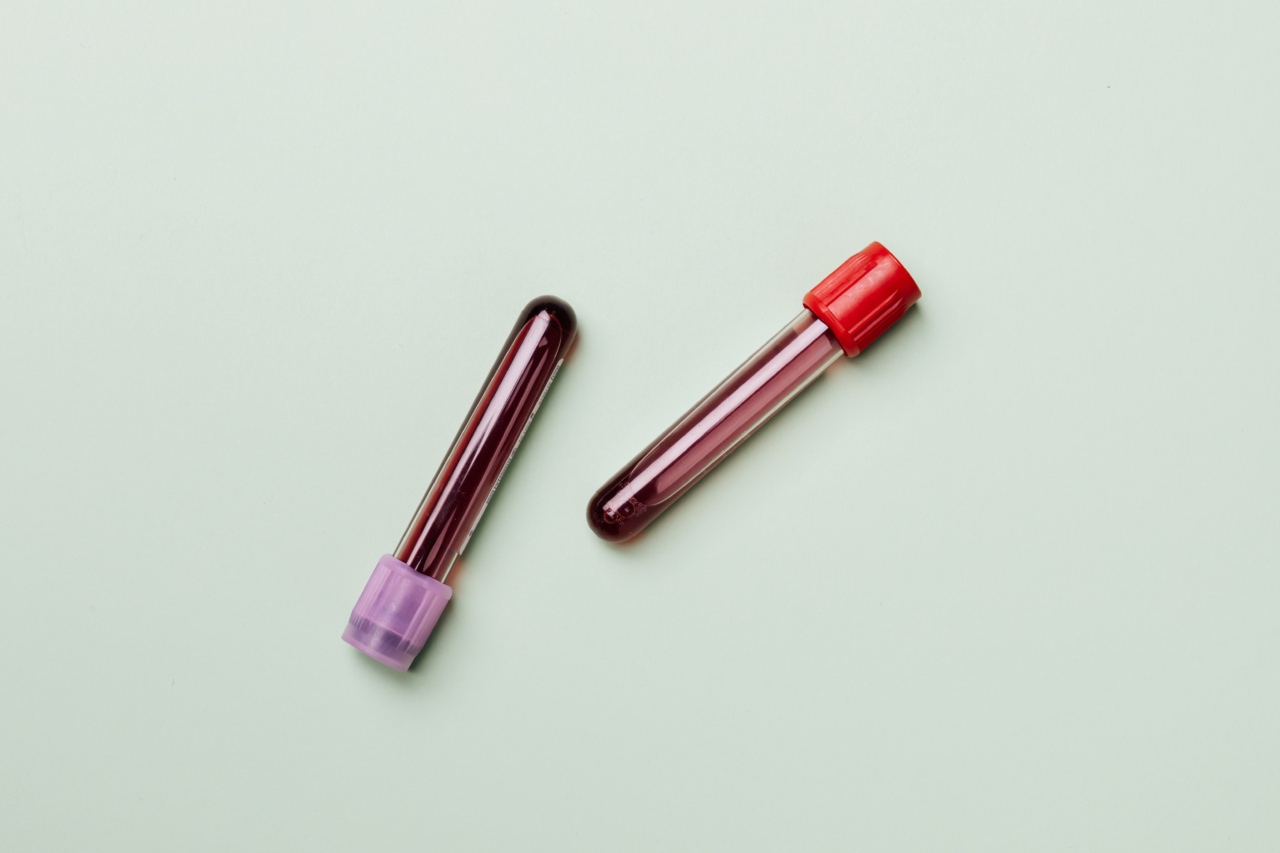When you’re scheduled for a blood test, your doctor may instruct you to fast for a certain period of time before the test. Fasting means abstaining from food or drinks, except water, usually for 8 to 12 hours before the blood draw.
This is done to obtain accurate and reliable results. However, some individuals may wonder what would happen if they don’t adhere to the fasting instructions. In this article, we will explore the implications of not fasting before a blood test and why it is important to follow these guidelines.
Why is fasting necessary for certain blood tests?
Fasting is typically required for specific blood tests that measure various substances in your bloodstream, such as glucose, lipids, and cholesterol. These tests include:.
1. Fasting blood sugar test
A fasting blood sugar test, also known as fasting plasma glucose (FPG), is used to diagnose diabetes or monitor blood sugar levels. This test measures the amount of glucose in your blood after fasting for at least 8 hours.
If you consume food or beverages prior to the test, it can significantly impact your blood sugar levels, leading to inaccurate results.
2. Lipid profile
A lipid profile measures your cholesterol levels, including total cholesterol, LDL (bad) cholesterol, HDL (good) cholesterol, and triglycerides. Fasting for 9 to 12 hours before the test helps provide accurate measurements of these lipids.
Eating or drinking can cause temporary elevations in triglyceride levels, leading to potential misinterpretation of the results.
3. Basic metabolic panel
A basic metabolic panel (BMP) is a comprehensive blood test that assesses different aspects of your body’s metabolism, including electrolyte balance, kidney function, and blood glucose levels.
Fasting before a BMP helps ensure accurate readings, especially for the blood glucose component.
4. Glucose tolerance test
A glucose tolerance test (GTT) evaluates your body’s ability to process glucose over a specific period of time. Fasting for at least 8 hours prior to the test helps establish a baseline blood glucose level.
Consuming foods or beverages can interfere with the accuracy of the test, potentially leading to false-positive or false-negative results.
What happens if you don’t fast before these blood tests?
Not fasting before these specific blood tests can result in imprecise readings and may require a retest. Here are the potential consequences:.
1. Inaccurate blood sugar measurements
When you consume food or sugary beverages before a fasting blood sugar test, your blood sugar levels will rise. This can lead to a false diagnosis of diabetes or mask the presence of prediabetes.
Inaccurate measurements can also prevent your doctor from accurately monitoring your diabetes management.
2. Elevated lipid levels
Eating fatty foods, especially just before a lipid profile test, can cause temporary elevations in your lipid levels, particularly triglycerides.
Elevated triglyceride levels can affect the interpretation of your overall cholesterol profile and potentially lead to unnecessary treatments.
3. Misinterpretation of kidney and electrolyte function
While fasting is not always necessary for assessing kidney function, it is recommended before a comprehensive metabolic panel.
Consuming food or drinks can temporarily affect electrolyte levels in your blood, potentially leading to misinterpretation and unnecessary medical interventions.
4. False-positive or false-negative results of GTT
Ingesting sugar, carbohydrates, or caffeine before a glucose tolerance test can alter the test results. False-positive results may indicate diabetes when it is not present, leading to unnecessary worry and additional testing.
Conversely, false-negative results may mask the presence of diabetes or impaired glucose tolerance, delaying appropriate diagnosis and treatment.
Why is fasting important for accurate blood test results?
Fasting helps establish a baseline measurement of the substances being tested, ensuring accurate interpretation and diagnosis.
The absence of recent food or beverage intake allows healthcare professionals to evaluate your body’s natural state and identify any abnormalities without external influences.
Additionally, fasting helps mitigate the effects of dietary components on blood composition and metabolism. By removing these temporary variations, blood test results can reflect your long-term health status more reliably.
Exceptions to fasting requirements
While fasting is generally required for the blood tests mentioned above, there are circumstances in which fasting may not be necessary:.
1. Non-fasting lipid panels
Recent evidence suggests that non-fasting lipid panels can provide equally reliable results for most individuals. Non-fasting lipid tests can be performed at any time of the day, as they are less influenced by food intake.
However, fasting is still recommended for individuals with very high triglyceride levels or those undergoing additional lipid tests that require fasting.
2. Time-sensitive tests
In emergency situations or when immediate results are crucial, fasting requirements may be waived to avoid potential delays in treatment. In these cases, the benefits of obtaining quick results outweigh the potential impact of recent food intake.
Conclusion
Fasting before specific blood tests is essential for obtaining accurate and reliable results.
Not adhering to fasting guidelines can lead to imprecise readings, potentially causing false diagnoses, misinterpretation of results, and unnecessary medical interventions. It is important to consult with your healthcare provider to understand the fasting requirements for any blood tests you may undergo.
























